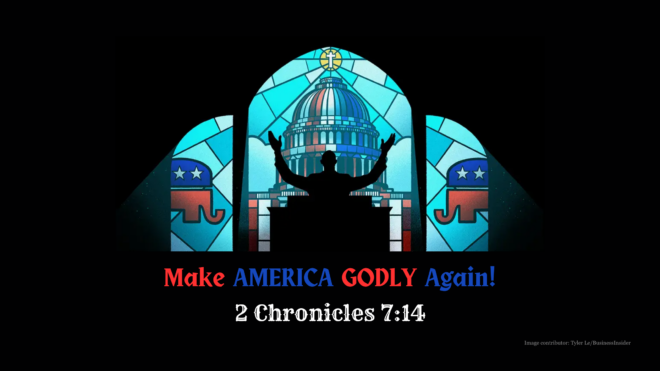It was fashionable in the sixties to talk of ‘participatory democracy.’ But John R. Hibbing and Elizabeth Theiss-Morse, of the University of Nebraska at Lincoln, claim, on the basis of much research and reading, that that is exactly what the people at large want to avoid. Rather, what they want could be best described as ‘stealth democracy.’ The people do not want to intervene in public policy, but they want the ability to do so if needed, somewhat like the theistic-evolutionist God, who lets the universe run by itself most of the time but makes occasional interventions. And the reason the system needs to be intervened in is not that leaders have the wrong ideologies or platforms. It is that they have a tendency to be self-interested and steer things to their own personal financial or hedonic advantage. This is what Francis Fukuyama called patrimonialism, and which he declared was the natural tendency of all political orders, apart from eternal vigilance.
Well, the people, according to Hibbing and Theiss-Morse, don’t like to exercise this eternal vigilance, but they’ll do it if they have to. They hope that some group of elites can be found that have no self-interest, and furthermore empathetically ‘understand’ what the life of the common people is like. [Maybe instead of elections, we should fill our political positions by lottery, like we do now with juries, or for a period we did with the draft.] In my own theology, the actual arrival of this ‘disinterested and empathetic leadership’ is called the Second Coming of Christ.
More frightening yet to political nerds, the people tend to think that everyone is in agreement on political goals; that there is one best way to achieve these goals, if only we knew what it was; and that differences of opinion are not honest, but arise from self-interest and patrimonial desires. [In other words, the people are ‘post-modern’ in their attitude; differences of opinion are, to them, a cloak for power and advantage.] While people love conflict in entertainment, in films and on the sports field, and may listen to talk shows just to enjoy the rhetoric, in real life they have what I called earlier, in regard to Obama, ‘allergy to antithesis.‘ If Hibbing and Theiss-Morse are right about this, perhaps Obama’s allergy to antithesis may have been an asset to his election in 2008, and his reelection may, of all things, benefit if he stays out of the posture of being a warrior on one side of anything.
Hibbing and Theiss-Morse do not have a political or structural solution to these problems. They do, however, recommend some changes in political and civics education in public and private schools. The main point that children need to learn, they believe, is that there really are such things as legitimate disagreements on how to achieve political ends, and about ends themselves, and that not every disagreement means that somebody is getting a personal advantage out of their position.
For all the misuse by moneyed interests of the ballot-initiative system, I think of it as a necessary safety valve. I think of elected officials as biased toward the interests of the ‘donorate’ in fiscal matters, and as biased to the liberal side on social issues, compared to the public at large. At the same time, the public doesn’t want to be taxed for the services it wishes the government to provide. It believes that the burden can be borne by rich people and smokers of cigarettes – I fear there aren’t that many of either nowadays! [These fiscal observations of the public are mine and others, not those of Hibbing and Theiss-Morse. They owe something to my father, who said that inflation was inevitable in a democracy.] So I would desire that fiscal set aside initiatives, like Proposition 98 for schools, be required to have a two-thirds majority; but initiatives on ethical issues, like Proposition 8, are things that any person is qualified to have an opinion on, and they should stay a simple majority.
There are two other implications of this thesis that are to me very disturbing. And Hibbing and Theiss-Morse do not explore them in detail, even though, in my view, they are some of the most important implications of the book.
First, if people distrust their elected officials, they put a high degree of trust in their unelected ones. In a culture where it is not very common for policemen, inspectors, and others to take bribes, but on the other hand elected officials must seek large sums of money to secure their election and re-election, the people will tend to trust the unelected officials more, defer to them, and obey their decisions and demands perhaps more willingly than they will statute law!
Second, a rather frightening poll indicates that local governments and some state governments [California being so large, I think it is more like a federal government on the trust level] are far more trusted than the federal government. Any one with any experience will tell you, however, that state and local governments, the smaller the more so, tend to be more blatantly patrimonial than the federal government is! A notorious example was last year’s vote to abolish redevelopment in California, where patrimonialism trumped ideology; all the legislators of the supposed Party of Big Government went along with the Governor’s proposal to abolish redevelopment agencies. In the supposed Party of Small Government, however, all but a brave six voted to keep redevelopment. This clearly has nothing to do with any ideology concerning the size of government.
But why do people trust their local governments more? I would guess precisely because local governments are farther away from the people. According to Hibbing and Theiss-Morse, people trust the courts, including the Supreme Court, precisely because they do not see the internal debates and discussions of courts, only the final rulings, whereas they do not trust the Congress because they do see the internal debate and conflict. We need to put Jeffersonian rhetoric aside and understand that the modern world of media has turned the world of the Founding Fathers on its head. It is easy and efficient to cover national political events; most people know who the President is; plus, L’Enfant must have anticipated technological progress, because the Washington Mall looks so great on television! The next tier is the U.S. Senators and the governors of the several states, and the candidates for those positions. They become media personalities. U.S. Representatives are much less in the limelight, and state legislators even less. By the time you get to city hall, obscurity thickens. And for all they say about small governments being ‘closer to the people,’ the larger and more populous the borough, the more media attention it gets. There are ten million people in Los Angeles County. More than six million of them live outside the boundaries of the City of Los Angeles. But if you were to poll these people, a lot more of them probably know that Antonio Villaraigosa is the mayor of Los Angeles, than know who the mayor of their own borough is. And if you were to poll the people of Westchester County or Long Island on the mayor of New York versus their own mayors, or similarly with Lake and Du Page Counties concerning the mayor of Chicago and their own mayors, you’d get the same answer.
Political thought in America really needs to give up the Jeffersonian rhetoric, and the rhetoric about ‘participatory democracy,’ and face up to the real world. The people want leadership that has no self-interest whatsoever and understands the lifestyle of the people. If that could be achieved, the government could do exactly as it liked and the people would trust it implicitly. Secondly, we have to understand that in a media age, the more local, the farther from the people, not closer; and we need to reshape our rhetoric, and our understanding of ‘subsidiarity’ [and I’m not against ‘subsidiarity’ in terms of this].



